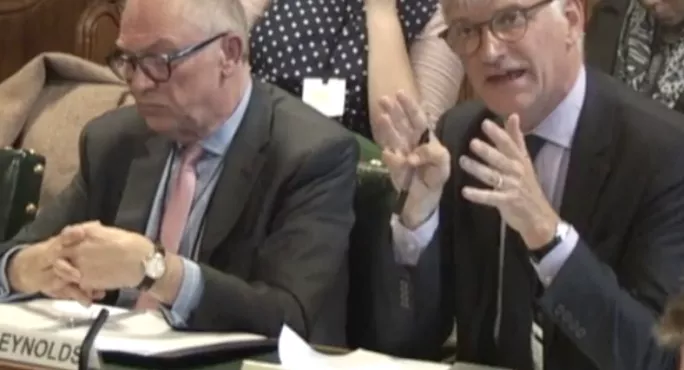The SEND system is in danger of giving “far too many children” a formal assessment of their needs, an under-fire council boss has claimed.
East Sussex’s director of children’s services, Stuart Gallimore, told MPs this morning that the threshold for an Education Health and Care Plan assessment was too low and was bringing people into a system whom he claimed “didn’t need to be there”.
However, he faced strong criticism from Commons Education Select Committee chairman Robert Halfon, who has asked why his authority rejected more than 40 per cent of requests for EHC plan assessments and lost the vast majority of its SEND tribunals.
Long read: SEND system ‘is not fit for purpose’
Funding: Union warns of £1.2bn SEND shortfall
Analysis: ‘Big problem with EHCP system’
Mr Halfon also highlighted the number of Local Government Social Care Ombudsman investigations that have found against the East Sussex authority.
SEND funding fears
Mr Gallimore was told that his authority had been in the minority in telling the committee that the threshold for the EHCP assessment was too low.
He responded: “I think we are in danger of bringing far too many children into a system that they don’t need to be in there, and then tying up resource in terms of assessing that need.
“If you use that threshold, you could probably apply it to about 11 per cent of the school population, which seems to be me to be misdirecting those much-needed services and turning it into a quest to get the EHCP rather than a quest to meet the needs of the young person.”
He told MPs that there should be an additional step in the EHCP process which does not just look at whether a child has SEND but also whether that child’s educational outcomes are being met.
Mr Gallimore claimed the current system was blunt and costly.
“Once you get on that path, it’s all about pushing for and getting that EHCP.”
However, his authority’s approach came in for criticism from Mr Halfon. He asked why the council rejected more than 40 per cent of requests for an EHC plan assessment, and suggested this was a high proportion.
Mr Gallimore said the authority was pushing back in cases where it did not think an EHCP was necessary.
“It is a high number but I don’t think you can extrapolate from that that we are acting in any way illegally,” he added.
The chair also highlighted evidence that the committee had received showing East Sussex has spent £38,395.60 on external solicitors and barristers for SEND tribunals between June 2017 and June 2018.
And Mr Halfon asked why the council lost the majority of its SEND tribunals and why the Local Government Social Care Ombudsman had found against East Sussex County Council’s SEND services in every complaint it had the jurisdiction to investigate since SEND reforms were introduced.
He added: “Does that know show something is deeply wrong?”
Mr Gallimore told MPs that the council had reflected on the number of tribunals it had lost. He said some cases had found statutory requirements had not been met. But he told MPs that the majority were cases where the tribunal had preferred an alternative plan to the one the council proposed.
He also told MPs that the council’s services had been visited by Ofsted, which had not found it necessary to issue a statement of improvement.
He said that, overall, the authority’s children’s services were judged to be “outstanding” last year.
The committee also heard from both Mr Gallimore and Terry Reynolds, director of education and skills at Newham Council, that high-needs funding was under pressure.
Both council directors confirmed that their councils and local schools forums had agreed to move funding out of the main schools budget into the high-needs block.
Last month the NEU teaching union warned that SEND provision had faced shortfalls in funding increases from central government since 2015.
NEU research on SEND spending in local authority areas shows that funding has failed to keep up with the rapidly increasing demand for provision.
The number of children and young people granted an EHCP is said to have increased from 240,000 in 2015 to 320,000 this year - a rise of 33 per cent.




